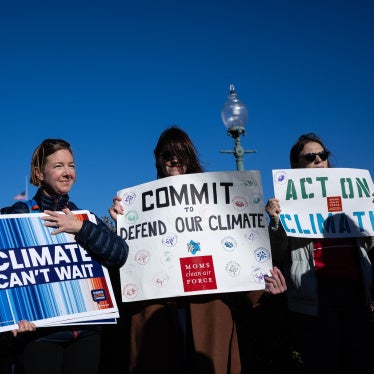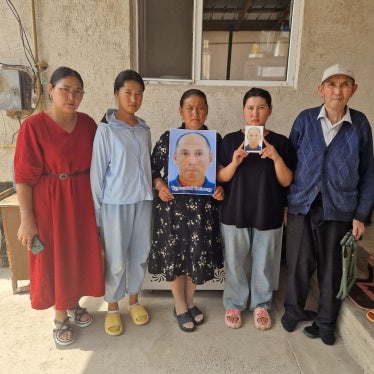When it comes to immigration, President Obama wants to be seen two ways by two different audiences. For Americans resistant to immigration reform, he presents himself as a stalwart enforcer of the law. For those in favor of reform, he casts himself as a humane administrator of an inhumane system.
In an attempt to keep everyone happy, the Obama administration offers "tough on the outside, soft on the inside" rhetoric: secure the border to "finally stem the tide of illegal immigrants" while targeting serious criminals, not "folks who are here just because they're trying to figure out how to feed their families". It's an appealing formula – but it's not what Obama's administration is actually doing.
Human Rights Watch has documented how so-called "targeted" interior enforcement is often anything but. Too many of those apprehended by Immigration and Customs Enforcement (ICE) inside the US and deported as "criminal aliens" are, in fact, people who've been convicted of low-level crimes, such as drug possession or traffic violations.
At the same time, the administration poured nearly $12bn into Customs and Border Protection in 2012, doubling the number of Border Patrol agents and stepping up surveillance in the region. So-called "border removals" are at record levels, now accounting for nearly two-thirds of the 368,644 deportations carried out by ICE in 2013, according to a recent New York Times report that sparked plenty of reaction – but left an important bit of bureaucracy largely unnoticed.
ICE describes "border removals" as people deported after being "apprehended along our borders while attempting to unlawfully enter the US." But the difference between a border removal and an interior removal is not as clear-cut as the administration lets on, and there are signs that many "border removals" involve people who aren't actually crossing the border but just happen to live nearby, or were passing near it when apprehended. Indeed, it appears that in order to be counted as a "border removal" by ICE, it suffices only that a non-citizen be arrested by a Customs and Border Protection officer at a border crossing or by the Border Patrol within 100 miles of a land or sea border.
This spring, I spoke with half a dozen unauthorized immigrants in southern Texas, all of whom had lived and worked in the United States for years. They were parents of US citizens and held jobs in the community. Each had a story of arrest and deportation by the Border Patrol, whether involving themselves or family members. One woman told me about her husband, who was fishing near where he lived in Port Isabel, Texas, 40 miles from the border, when Parks and Wildlife police cited him for not having a permit and called the Border Patrol. After almost 10 years in the US, he was deported within two days.
These immigrants' stories echo those of others further from the US-Mexico border. Residents of Washington state's Orcas Island recently made news by opposing the deportation of Benjamin Nuñez-Marquez, an unauthorized immigrant who has milled lumber on the island for 15 years. He was stopped by the Border Patrol while driving an 80-year-old neighbor to the hospital.
The case of Nuñez-Marquez is not unique. In 2012, for example, the Border Patrol arrested Mexican immigrants in Batavia, New York, about 40 miles from the Canadian border, and a Guatemalan woman with two US citizen children in Ashtabula, Ohio, on the shores of Lake Erie, according to Border Patrol records obtained by Human Rights Watch. The Guardian recently reported on Latino immigrant workers in Forks, Washington, who live in fear of the Border Patrol trucks that police the Olympic Peninsula near Canada.
To be sure, publicly available data doesn't let us determine exactly how many of these people – the people apprehended by the Border Patrol, then counted as "border removals" – get picked up in the act of crossing, or how many have existing ties to this country. And the vast majority of arrests made by the Border Patrol are in the southern border region, which many migrants cross every year. But, as Human Rights Watch has documented, many migrants who get caught while crossing the border are returning to family with whom they have built lives in the US.
President Obama has tried to convince us that there are good deportations and bad deportations, and that the more than 2m deportations carried out by his administration are mostly the good kind. But there are good reasons for thinking that many of those removed are settled residents who have been torn from their families and communities – and their deportation is inhumane and unnecessary.







